Award Books by Genre: National Book Award/Finalist
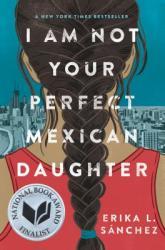
As the daughter of Mexican immigrants, Julia was happy that her older sister Olga fulfilled the role of "perfect Mexican daughter." Prim and proper, Olga always did what she was told and followed the rules. During Julia's junior year in high school, Olga was run over by a semi-truck and killed. After Olga's death, Julia is surprised when she finds some scandalous items in Olga's off-limits room. As Julia tries to learn more about her dead sister, she finds herself learning more about her family, friends, and ultimately, herself.
YA contemporary fiction is not really my thing - I went on a reading spree of this genre recently as I was reviewing my Goodreads "read" list from 2018 and realized that I have read zero books in this genre. Because I need to read it for work, I decided to go with award winning books and/or authors from a different background than myself. This book, a National Book Award finalist about the daughter of Mexican immigrants living in the US, met that metric and appealed to me on the diversity front. I gave it a go, and was quite pleasantly surprised.
Julia is an extremely sympathetic character, and not just because she does fairly well in the face of a lot of adversity. Her voice is at times raw and honest and at other times snarky and hilarious, which really worked for me. Even though we don't have a lot in common, I was able to connect with Julia and I really cared about her and her story.
There's a lot of character development as Julia slowly learns more about her family members and their pasts, and there's just enough intrigue to keep the pages turning.
In addition to being a good coming of age story, this book covers some really important topics. Obviously, there's a lot about grief and how we grieve differently. Julia is suffering from depression, and the book is not shy about discussing her mental illness. The end of the book is followed by a section entitled "Mental Health Resources." Moreover, I learned a bit about some aspects of Mexican culture, and I got to take a peak into the lives of folks who had recently immigrated into the US from Mexico.
Considering this wasn't really my thing in the first place, I quite enjoyed it! Readers of contemporary YA will like this one - its got a touch of romance, a likable protagonist, and loads of substance. 3.5 stars.
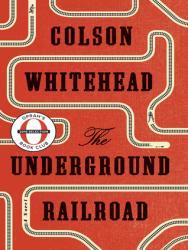
I listened to this book on audio, so I'm sure I missed bits and pieces. Cora's life as a slave in Georgia and through her journey on the underground railroad was fascinating. The depiction of the underground railroad as actually being an underground railroad was odd to me, but I'm sure there's some symbolism or other literary device that escapes me. Probably the most interesting part of this book was the section that took place in North Carolina. It was so indicative of the Third Reich that it was chilling. I found the ending to be abrupt, but still overall an interesting read.
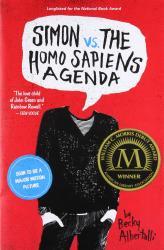
Due to the fact that the new movie, "Love Simon", came out recently, I thought it'd be fitting to review the book it's based on! Simon is a mildly popular theatre kid who loves music - and is gay. One day he sees an anonymous message from another boy just like him on his school's Tumblr. His name is Blue, and over a series of emails, they form a kinship as they get to know each other better - without ever revealing their true identities. At the same time, a boy named Martin finds out about Simon and Blue's relationship and threatens to out Simon if he doesn't help Martin get to his crush, Abby. As the months pass, Simon realizes he's fallen in love with Blue and is determined to find out who he really is. The author drops clues throughout the whole novel as to who Blue might be, each one pointing to a different suspect. As each possible candidate was introduced, I felt everything from joy to confusion to dread. All in all, Albertalli creates an engaging and believable narrative of the experience of a gay teen I would recommend everyone to read.
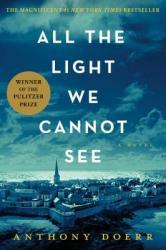
All the Light We Cannot See by Anthony Doerr is the story of two teenagers living during World War Two. Marie-Laure LeBlanc is blind, and lives with her father in France. Werner Pfennig lives in a coal mining town in Germany. As war draws near, Marie-Laure and her father move to the French coast to try to avoid the war while Werner is pressed into service in the German army. Both of the main characters learn to accept and cope with war in their own unique ways. They come of age through the war, and learn to navigate their war-torn world. This novel was recommended to me by my grandmother. I took her recommendation eagerly, as I love studying history. I thoroughly enjoyed the way the author used different points of view to show many sides of one story. Each of the characters must learn to interpret their own experience whether that is Marie-Laure memorizing her way around her city or Werner in his military service. I found both of the main characters very relate-able, despite their story taking place decades ago. Marie-Laure has a never-ending curiosity and Werner is constantly questioning the morals he is presented by his society. These characteristics are things that I think many teenagers, of any era, can relate to. This has been one of my favorite reads this year, and I would highly recommend reading this novel.
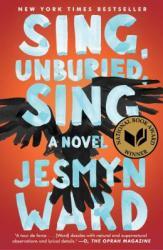
Jo Jo and his mother Leonie have been living on a farm in rural Missisippi for their entire lives. Jo Jo's father, Michael, has been in jail for drug related crimes, and thus most of Jo Jo and his sister Kayla's upbringing has been done by their grandparents: the gruff but ultimately loving Pop and the cancer-ridden matriarch, Mam. Everyone's world is about to be upended, though, as time grows near for Michael to get out of prison.
Writing any sort of synopsis for this book was particularly challenging, as there's not much in the way of plot. I don't mean that in a bad way. I sometimes love books that focus solely character development, and that is absolutely what this is. The writing is insanely gorgeous and it's obvious from the gruesome beginning scene as to why this won the National Book Award.
Ward manages to make almost all of the characters relatable or lovable even as they do and say and think terrible things. She absolutely captures some of the wonderfully horrible aspects of the human condition, and here is a lot to love in this book.
That being said, I did not much care for certain aspects of the audiobook. First, by the time I got the book, I had forgotten what it was actually about. I did not remember that ghosts were a part of the story and was really confused for the first part of the book (are these flashbacks? how is that character here? I thought he was dead?), but I eventually figured it out. For me, the ghosts detracted from the story and I could have done without that element, even though magical realism is often my jam. The biggest problem for me, however, was Rutina Wesley's performance (which, hilariously enough, is why I went for this in audiobook format - I liked her in the few seasons I watched of True Blood). It was over enunciated especially given that Leonie is from Mississippi, and I found her parts to be melodramatic as there were a lot of weird pauses and words said breathlessly. It just didn't work for me, and I wanted to skip all of Leonie's parts.
If you would like to read a gorgeously written character study/family drama with a compelling setting, then this is a great bet. Just read it, don't listen to it. 3 stars.
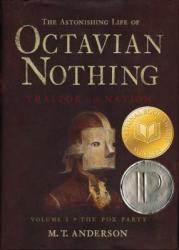
I didn’t enjoy this book at all. It is not a classic but it is written like one. It is historical fiction and there is some pretty disgusting parts in this book. Warning: do not read before eating. However, do not let my opinion discourage you. You may love this book and you may not. I, on the other hand won’t read this book again.
Reviewer grade: 8th
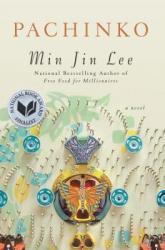
Read a story of family, loyalty, racial prejudice and the meaning of difference. Enjoy the individual triumphs and failures of several generations of one family and changes they experience as they live and learn. Find out about the old time gambling sport, pachinko and its effects on an extraordinary family. This is the kind of book that makes you miss your "friends" when you finish it.
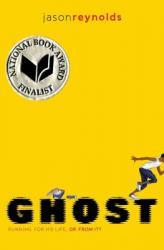
Jason Reynolds (author) + Guy Lockhard* (narrator) = Magic
Castle Cranshaw, aka Ghost, has been running from things his whole life: his violent father, the consequences of altercations at school with a bully, and most of all, the anger that's been building up inside him. So Ghost has a ton of natural talent, which he puts to use when he inadvertently impresses the coach of a local track team. After the coach begs him to join, and Ghost reluctantly agrees, he begins to see that he might be happier if he runs towards something instead of away from everything.
I listened to this audiobook, and it was excellent. I really struggle with middle grade fiction, as I oftentimes have trouble identifying with the characters (I mean, middle school was a loooooooong time ago), but Reynolds took me right back to the thick of it. In a good way. The day-making/ruining things your classmates would say, interactions with adults in positions of authority, and not really being sure about who you are and what you want in life - Reynolds nails it all. Moreover, Ghost is just a straight up likable character, even as he makes poor decision after poor decision. We really get to see him grow over the course of the novel, and even as he does the wrong thing, his heart is usually in the right place. I loved his relationship with his mother, and later, with Coach. There aren't always positive adult relationships in fiction for young people, and so it was nice that Ghost had so many adults that he could turn to. The secondary characters were just as dynamic, and also had very serious problems of their own to deal with. I'd read a book about any of them. Shoot, I wanted to adopt most of them. As a runner myself (although I'm not competitive and do longer distances), I really liked that the book was about track as it's not a sport we read or hear a lot about. There's a bit about fartleks that was pretty hilarious, and I think runners (Land Sharks, anyone?) will find a lot to love here.
If you are looking for a book to listen to or read with your kids, this is a great one. There are loads of teachable moments, and it is ultimately a heartwarming tale of self-discovery. I couldn't get enough of it - 5 stars.
*Shout out to Guy Lockhard - he narrated the other Jason Reynolds book that I've listened to (All American Boys), and he is a fantastic narrator. It seems like Reynolds thinks so as well, because it looks like Lockhard will be narrating Reynolds' recently released book about Spiderman Miles Morales. I may have just put that on hold...
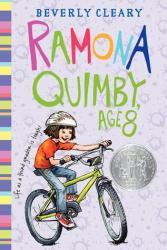
This is a sweet book. It's not so mind-blowing as to warrant an in-depth review, so I'll just leave it at that.
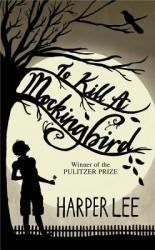
Although it was a little hard for me to get into this book, once I did I was hooked. This book is about Scout, a 7 year old girl who is dealing with the hardship of her father having to defend a black man of rape in the 1940's. Along the way, Scout and her brother Jem meet Dill and they spend their summers together. Dill wants to get Boo Radley to come out of his house, and in the end, he does. With this book is the message to put yourself into others shoes to see how they feel. A classic book, great for anyone.
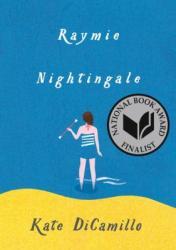
The best way I can describe Raymie Nightingale is to say that it is a book you can fall into. Kate DiCamillo is a master of characters and story, and Raymie Nightengale is no exception. This author weaves magic through words. We enter Raymie’s life mid-stream; she is ten years old and floundering a little. Through some new, strong friendships, she discovers strength in numbers – and in herself. The subject matter might be a bit much for some. Raymie’s dad has “run off” with a dental hygienist. But DiCamillo is never heavy-handed with the details and navigates the discomfort with aplomb.
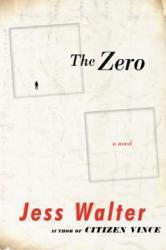
I’ll be honest and say that I had no idea what this book was about before I started listening to it. Once I got into it, I could clearly see how the title and cover image related to the story at hand. It’s interesting to think that a mere five years after the terrorist attacks on September 11th, a book like this could be written. Of course, there is plenty of highly descriptive language that helps to cement the story to the reality of the tragedy. That being said, there are many situations in the plot that feel quite cynical, if not downright dark in their humor. Perhaps it’s this mixture of the absurd and the tragic that gives The Zero its interest.
I did find the memory gaps experienced by the main character to be an interesting literary device, especially in their transitions. For the main character to have a series of memory gaps to add to the eventual reveal at the end of the book, I almost felt like I was listening to the film, Memento (2000). Considering how much I love Memento, this was a good thing. The character only knows as much as the reader, which leaves him and us piecing together what happened at the same pace.
Despite its ability to poke at the ridiculous nature of the nationalism that resulted from this disaster, The Zero does show the effects of this national tragedy on its citizens. Loss can be hard to deal with, and everyone does so in their individual way. The poignancy of the narrative is true even today, more than 15 years after the events that transpired that day.
A cynical and often darkly humorous examination of the effects of 9/11, I give The Zero 3.5 stars out of 5.
For more reviews of books and movies like this, please visit www.benjamin-m-weilert.com
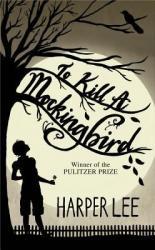
To Kill a Mockingbird shows us that growing up can not always be as easy as it seems. Especially when you live in Maycomb, Alabama, and your father is a lawyer defending a black man. Scout grows up not knowing much about the real world it is not until the trial that turns the whole town upside down that she really discovers how the South is really run. I love how relatable the characters are to teenagers like us today. I love how simple the story line is and the literature is beautiful. It tells you simply how things should be, it states things blatantly through Scout's eyes. The only thing I did not like about the book is that at some points it was hard to follow the story line. Although the story is very simple it got more complex when reading further. I chose this book because I had heard from many people that this was an incredible book and decided to see for myself. The book itself did surprise me as it did have a rather twist ending that was rather unpredictable. The characters were extremely relatable, I could see that in certain situations I would have acted similarly. I would say that it is definitely one of the best book I have read this year or even ever for multiple reasons. It can relate to old and young and describes an issue that still exists today.
Reviewer Grade: 9
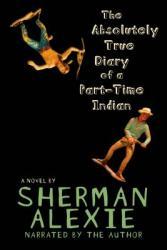
The Absolutely True Diary of a Part-Time Indian is a book that was assigned for my literature class, meaning I had low expectations and thought I would hate the book. However, the opposite was true, and the author actually uses a humorous outlook to portray a witty teenage character in this novel. The book follows one school year in the life of Junior, a fourteen-year-old boy living with his family on the Spokane Indian Reservation near Wellpinit, Washington.
It is told in a diary style, moving from the start of the school year, through the major holidays, and ending with the beginning of summer. It includes both Junior's written record of his life and his cartoon drawings, some of them comically commenting on his situations, and others more seriously depicting important people in his life. The story, as a whole, is entertaining, funny, and is still able to discuss darker issues such as abuse, alcoholism, and poverty. Overall, I thought this novel was fantastic, and was an easy and casual read. I would recommend this book to practically anyone looking for a fun, entertaining story.
Reviewer Grade: 11
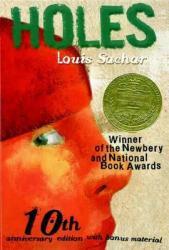
The book Holes by Louis Sachar is an astonishing book that braids together three different stories that eventually will come together because of the main character known as Stanley Yelnats. Stanley Yelnats, a boy who has bad luck because of a curse put on his "no good dirty rotten pig stealin' great-great-grandfather", is sent to Camp Green Lake, a juvenile detention camp, for a crime he did not commit. Stanley and the other boys at the camp are forced to dig large holes in the dirt every day that are 5 feet wide and 5 feet deep in the blistering heat, but they aren't digging holes to build character like Mr. Sir says.
Louis Sachar was born in East Meadow on March 20th 1954 and lived there until 4th grade and it wasn't until high school that he really started to love reading. Louis Sachar is an award-winning author of twenty-five books for children and young adults. The book Holes has won around 16 awards and recognitions. He didn’t really just sit down and start writing the story, he built the story around the setting at camp green lake. In a Q&A he said that he "started writing about Camp Greenlake and it developed from there. I suppose the initial inspiration for writing about the camp came from the heat of summers in Texas." And "Anybody who has ever tried to do yard work in Texas in July can easily imagine Hell to be a place where you are required to dig a hole five feet deep and five feet across day after day under the brutal Texas sun." That was where he started the book and his inspiration. Louis basically just started with writing about camp green lake and the fact that its just a desert instead of basing the book on any characters, which I found was interesting.
I think that Holes is an amazing book that it all ties together in the end. I just love this book because of how complex it is with putting three stories together to create one detailed and vivid story that you will want to read more than once.
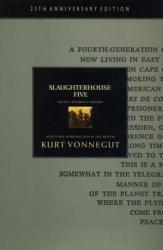
"So it goes..."
You may be thinking that based on the title it is the fifth book in a series of horror novels, but I assure you that it is not. Slaughterhouse-Five is a very thought provoking and poignant anti-war novel that has elements of science fiction, including 4th dimensional time travel and aliens. It’s a nonlinear story that follows a man named Billy Pilgrim as he travels throughout different moments in his life, weaving back and forth through differing time periods. He travels from his time as a chaplain’s assistant in World War II to his normal life with his wife and children to being an exhibit in an alien zoo on the planet Tralfamadore.
By becoming “unstuck in time”, as Billy puts it, he is able to relive these moments in his life and reflect upon them more deeply. This book is one of the best representations of 4th dimensional time travel that I've come across, and if you ever struggle to grasp the concept of time as the 4th dimension, as I do from time to time, then this book will certainly help create a better understanding of it. The book centers around Billy Pilgrim’s experiences during the war and all of the atrocities that he has seen, culminating at the end with the Bombing of Dresden, a moment which influences the rest of his life.
By being told out of chronological order, the structure of the book drives the importance and impact of the moment rather than just describing what happens next and it creates a sort of puzzle that the reader must put together. It is full of satire, wit, and black humor that is vintage Vonnegut and is one of the strangest meditations on war and humanity. If you want an extremely thoughtful book that challenges your perspective, then I highly recommend Slaughterhouse-Five by Kurt Vonnegut.
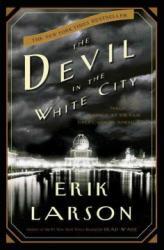
The Chicago World’s fair, also known as The World’s Columbian Exposition, was a world’s fair held in Chicago in 1893 meant to counter France’s world fair and give Chicago back its fame, and even though it was not yet completed when opened, it proved to be a phenomenal success. The Devil in the White City follows the life and story of two interesting men:
Daniel Hudson Burnham and H.H. Holmes. Burnham is the famous architect who directed the construction of the fair and Holmes was a psychotic, but genius and seductive, serial killer who used the World’s fair to lure his victims, almost always women, to their death. Although their lives different, their stories and accomplishments are intertwined and connected, which Larson seeks to condense. With a meager three years to build the fair, and setbacks such as the death of his partner, weather, and health issues, Burnham struggles to finish the fair on time, more or less make it better than France’s.
Meanwhile, Holmes uses his persuading words and charms to commit fraud, acquire debts he never plans to pay back, and worst of all be able to kill and dispose of human bodies with ease. Burnham’s and Holme’s stories never connect in the beginning, and they never meet each other, but as Larson explores the events of 1890-1893, the connection between them becomes clear.
Reviewer Grade: 10
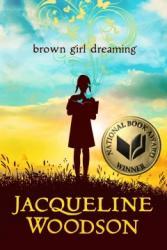
This poem book is really well written. It has a unique poem style with just as a unique narrator. This book is about a girl named Jackie growing up in the 1960's-1970's. She has to deal with the hardships of not being treated well because of her skin color along with other things going on in her personal life. The author of this book did a really good job at putting these dilemmas that Jackie faces in the mind of a little girl. I would have rated this book 5 stars if it wasn't so dry in the middle. You get sucked in right from the start but then in the middle of the book, it gets a little boring. But don't give up on it, it picks up later on and has a fantastic ending.
Reviewer Grade: 8
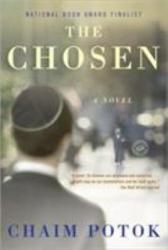
During a softball game in Brooklyn, New York in 1944 between two different Jewish sects, Danny Saunders hits the ball and smacks the pitcher, Reuven Malter, right in the face knocking him out. Reuven is sent to the hospital, and when Danny comes to visit him to apologize Reuven rejects his apology. Partly because he was mad at Danny, and partly because they were of a different sect.
Eventually, Reuven forgives Danny and they develop one of the strongest friendships ever seen. Unfortunately, Danny’s and Reuven’s fathers develop a dislike towards one another, and Mr. Saunders forbids Danny from associating with Reuven. Their friendship grows distant, but after almost a year or two it seems like, Danny is allowed to speak to Reuven and they begin to repatch their friendship. During their friendship, Reuven sees a lot of Danny’s life and he finds out that Danny doesn’t want to be a Rabbi, but his father wishes him to. This book is a phenomenal classic and tells the story of how two friends from different, hostile backgrounds are able to have a friendship as strong as Lewis and Clark. I recommend this novel to those interested in Jewish background, but it is a book that everyone can take something from.
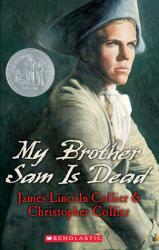
When I started this book I could not understand why it had been banned. It seemed so innocuous. I only read it because it was in the free pile where I work. I looked it up and it was for violence, language, and an unpatriotic view of the Revolutionary War. Fair enough. It is violent and unpatriotic for sure, which is why I liked it. It's also a very good story and is about as accurate an account of the Revolutionary War era as can be reasonably expected from a work of fiction for young people.
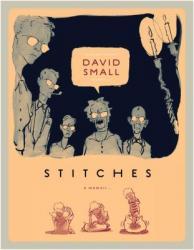
This is an autobiographical graphic novel of the author, David Small. The book focuses on his early childhood to early adulthood. It shows the progression of his relationship with his father, a doctor, and his mother, a homemaker in a very reserved and controlling dysfunctional household. As a young man, he ends up with a tumor on his neck that is removed but damages his vocal cords, and doctors say he won't speak again. Along the way, he discovers who his family and himself are and finds out more than he bargained for.
This book is very dark and the color scheme is perfect for the tone of this book as well, using black, white, and shades of gray primarily. The art is contemporary in its quality and color scheme but has a more retro feel to its style of art as well, especially in the faces, which gives it the feel of the era the book was set in. This book is the type of book you would be able to, and due to its page turn-ability you likely will, finish in one sitting. It's easy to get invested and feel all the emotions and heartbreak of the author along the way. It can be a bit hard to read since it is darker in its focus and has a realistic feel. It also has a few twists and turns along the way which help keep you even more entranced by the book. I really enjoyed reading it as a change of pace for myself since I typically deal in a bit lighter fair in terms of topics. It addresses issues of mental illness and controlling behavior well without being preachy or self pitying. I might not read this book again but I certainly won't forget it either. If you like dark, realistic graphic novels, this just might be your next favorite book!
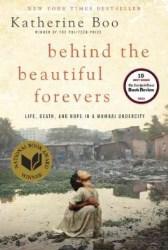
Actual Rating: 4.3
I originally discovered this book on a list of titles recommended by John Green, author of The Fault in Our Stars and Looking for Alaska. Katherine Boo’s incredible work revolves around “life, death, and hope in a Mumbai under city.” It follows several characters as they struggle to survive life in rural India: Abdul, a Muslim teenager who provides an income to his large family through collecting and selling trash, Asha, a woman with dreams of escaping poverty through politics, Kalu, a scrap metal thief, and dozens of others who live together in a small village built near the Mumbai airport. While this book may not be as relateable as many that are popular now, it brings humanity to a group of people we tend to see as “other” due to their distance and situation. This book changed the way I look at people below the poverty line, and I highly recommend it.
Reviewer Grade: 9
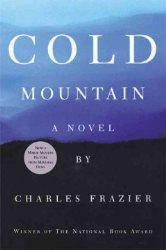
Charles Frasier’s novel Cold Mountain intrigued me from the beginning. It tells the story of Ada and Inman who both have suffered from their own tragedies and horrors from the beginning of the novel. Inman is scarred emotionally and physically from serving in the Civil War. Ada is left with the family farm after her father dies and having been raised sophisticated, she has no idea how to maintain it. However, each is able to overcome their trials and defy society’s expectations in pursuit of each other and their own dreams. The characters in this novel are both so relatable in the idea that we all experience horrible, sad things that we must learn to overcome and we also all face limitations and expectations from society that we must ignore in order to embark on our own journey in pursuit of our own American Dream. Although long and a bit tedious at points, this novel is definitely one of the best I’ve read this year.
Reviewer Grade: 11
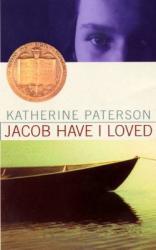
You know, I love Katherine Patterson. Bridge to Terabithia is my all-time favorite children's book. This book just didn't affect me the same way. Maybe it was the subject matter, I don't know. It was well written, just was missing the magic. But it's still worth a read.
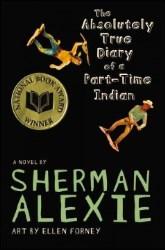
The Absolutely True Diary of a Part-Time Indian is a very good and interesting book. This book is about an Indian boy named Arnold, also known by his nickname Junior, who is a freshman in high school. Junior lives on a Native American reservation and doesn’t fit in with any of the other kids very well because he has many special abilities that make him look, talk, and function differently. In the story, he has a best friend called Rowdy who is in his eyes, is really tough and strong. One day, Junior decides that he needs to go to a better school OFF the reservation (Rez) called Reardan. When he transferred, Rowdy decided that he hated Junior. Everyone at his new school calls Junior names, and makes fun of him because he’s an Indian with disabilities. Throughout the book, Junior encounters many more hardships and obstacles. I did like the book, although it was very depressing towards the end. The book has parts with more mature content, but is not bad if you are older. The part I enjoyed in the book is when Junior makes the basketball team by being crazy and making crazy shots. This is the second best book I have read in 2016… Messenger of Fear being the first. All in all, this is a great book that any teen should check out if they are mature enough to read it.
Reviewer Grade: 7
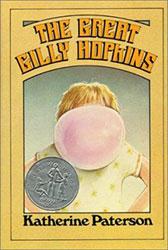
Very good, as all Katherine Paterson novels are. A quick read, and like her other novels, it shows rather than tells. My only problem with the book was the ending was too abrupt for my taste. I would have liked for it to be longer and show her life with her grandmother and the effects of Courtney's visit.
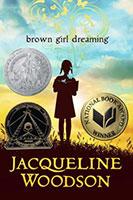
This autobiography written in free verse by Jacqueline Woodson is an excellent insight into growing up as an African American girl in the 1960's.
It is a very moving portrayal of the role of family (grandparents, parents, uncles & aunts and siblings) in a life of a child. The author also gives the reader a definite sense of place, whether it is Ohio, South Carolina or Brooklyn, NY. Highly recommended.
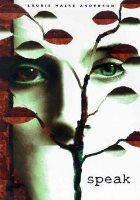
Speak is about a girl named Melinda who was raped at a party. She calls the police, but is unable to tell angry partygoers why she did it. As she struggles with her secret, she eventually stops talking. The book follows her as she overcomes her past and finds her voice.
I liked the book. Nothing in it really amazed me, but it wasn't a bad read.
Reviewer Grade: 12
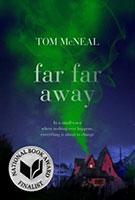
This is and isn't your typical fairy tale. It is haunting, but not because Jacob Grim is the narrator ghost that only Jeremy can hear. Jeremy's mother may or may not be dead, a child may or may not be missing, the sheriff may or may not be evil, the baker may or may not be jolly, the girl may or may not be gotten and it may or may not have a happy ending. But read it and see if you can predict what happens in Far Far Away...
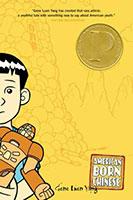
Not bad. I enjoyed every part of this book except for the monkey god sections. I don't know, those parts just didn't appeal to me. I rarely read graphic novels so maybe certain things were lost on me because of the format. Overall I was somewhat underwhelmed